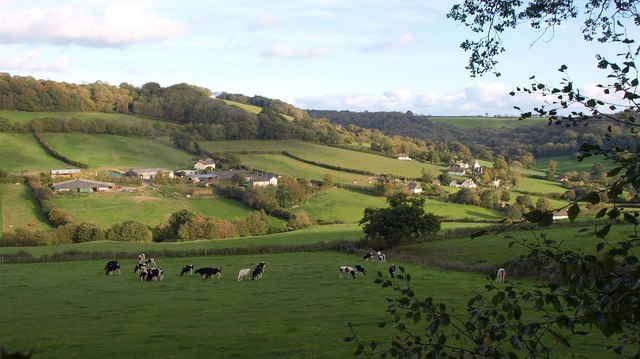“… the imperative of collaborating in surmounting food insecurity, environmental degradation, and political polarization.” [ Think Global Health]
.
Of late, there have been several discussions on local social media around the issues of food and farming, the climate and biodiversity, and ‘the environment’ generally:
On the Climate Awareness Partnership Sidmouth pages there has been further debate around whether or not it’s possible to be working to achieve net zero livestock farming.
On the Sid Valley Biodiversity Group looks at how our rural biodiversity grew up alongside traditional farming practices that changed at a pace that nature could match – and that “what we need if we are to have what our grandparents and their grandparents had is a restoration of traditional agriculture. The problem is that the yield per hectare will be much lower while the human population is much larger.”
As for the serving of food and drink, on the Sidmouth Plastic Warriors pages, there’s a look back ten years ago at “bamboo travel cups being paraded around” – and how “all our good intentions” seem to have slid since. Whilst also on the same pages, the slow progress towards the first global treaty to cut plastic waste is somewhat “disappointing“.
But to finish this round-up on a positive note, on the Sidmouth Community pages, there were thanks to The Works who held a bags drive for the Food Bank – a comment being that “good community support is always appreciated”. And yet, of course, we’re talking ‘food security’ – or lack of it for some.
These issues, then, are a challenge to work with locally.
From the Think Global Health organisation, they look at how polarization threatens food security and systems globally – giving some context and perspective on these ‘local issues’ – with the opening and closing paragraphs looking at the challenges and possible ways forward:
The world confronts an array of daunting challenges, chief among them biodiversity loss, climate change, deforestation, and water scarcity. Food production both contributes to and is threatened by those global problems. As the planet edges closer to environmental tipping points, cohesive action has never been more critical. Yet, when collaboration should be deepening, political polarization is rampant.
Polarization in politics has become the norm in the United States and many other countries, including France, Italy, and the United Kingdom. A similar phenomenon has emerged over food systems playing out in capitals and rural communities around the world. The growing divide is evident in national farmer protests, diverging food production practices across countries, and conflicts between the animal protein industry and alternative protein producers. Bridging the divide requires a revolution in communication strategies that recognizes the multifaceted nature of sustainability and embraces the trade-offs between different agricultural practices...
Innovative solutions that reconcile human needs with environmental stewardship can embrace agricultural sustainability’s complexity and foster open dialogue between proponents of different farming practices about common interests and inherent tradeoffs involved in pursuing a secure, sustainable, nutritious, and equitable food future for all. That approach can deepen appreciation of agricultural sustainability’s nuances and the imperative of collaboration in surmounting food insecurity, environmental degradation, and political polarization.
Finally, however, not only is proper informed debate happening on local social media about these issues – but there are several positive actions happening.
So, on the Sidmouth community for the people pages, a local gardener wondering if anyone could help with dealing with compost was deluged with offers from landowners and farmers.
On the Sidmouth Community Food Forest pages, we can learn about food forestry on an established site over the hill in Awliscombe – a 5 year old local Food Forest which is “not only is it very productive but also very beautiful!”
On the River Sid Catchment Group pages, they have been “delivering a bunch of our Community Questionnaires to the lovely people at the library!” – with a link to the River Sid Catchment- Community Questionnaire covering all the issues around a healthy river.
And on the Sidmouth Sea Fest pages, there was celebration of creativity, where “the aim was to draw and contribute to a film which inspires others to be climate-positive” – plus a great Video showing how “community group stands & local food stalls were a crucial part of the success of this year’s Sea Fest!”
Finally, away from social media:

…